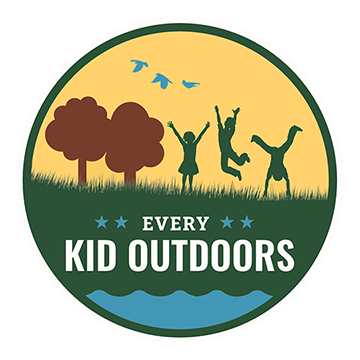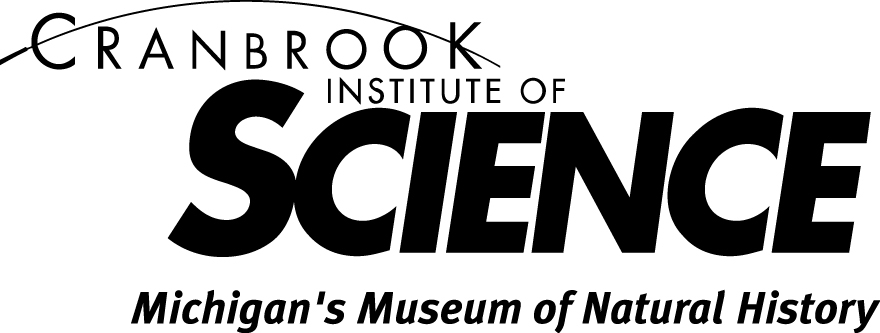Programs
Resources
Details
Project ideas from the Michigan Green Schools Program
Michigan Green Schools Webinar
MSU Extension

The Nature Conservancy
The Nature Conservancy is a global environmental nonprofit working to create a world where people and nature can thrive.
Youth Engagement
Nature Lab
Department of Natural Resources
Classroom and field trip resources
Explore the many ways to connect your students to nature. From virtual live lessons to in-person field trips to raising real live salmon in your classroom, there are so many ways we can help you get your students outside, or bring the outside in!

Every Kid Outdoors
Fourth-grade educators can download an activity and print paper passes for each student. This program only provides passes for fourth graders.

Recycle Right®
From the Three Basic Rules to in-depth guides and resources, find everything you need
to recycle the right way, every day.

Project WET
Our mission to create the next generation of water stewards is carried out in thousands of classrooms around the world every day. We have trusted, relevant, and interactive water and climate education resources that teachers need and students love.

Cranbrook Institute of Science
The Freshwater Forum at Cranbrook Institute of Science is the umbrella initiative for all of the Institute’s freshwater and environmental science programming delivered both at Cranbrook and through physical outreach.

NASA

National Wildlife Federation
Education plays a vital role in connecting people with wildlife. Through programs, curriculum, scientific reports, and more, the National Wildlife Federation is furthering knowledge about nature and wildlife, and inspiring future environmental stewards.

Think! Energy
Think! Energy reaches students and their families with a proven school-to-home approach to energy efficiency.

Green Schools Alliance
Uniquely created by schools, for schools, and now spanning nearly 10,000 members worldwide, the Green Schools Alliance provides programs, tools and resources to fast-track sustainable solutions in schools, empowering all members of the school community to become sustainability champions.

Michigan Alliance for Environmental and Outdoor Education (MAEOE)
The mission of the Michigan Alliance for Environmental and Outdoor Education (MAEOE) is to support, inspire and empower a diverse network of individuals with a passion for environmental and outdoor learning.
The Lunch Rescue & Recycle Pilot Program
This program is intended to support schools in reducing landfilled food waste as part of Michigan’s MI Healthy Climate Plan to cut food waste in half by 2030. Many of the strategies used to conduct waste audits are based on information from Lunch Out Of Landfills and the EPA Guide To Conducting School Waste Audits. The results of this pilot program would be used to identify collaborative opportunities and funding to continue to provide support to schools interested in reducing their reliance on landfills. More information about the program and its affordability to schools can be found here, and it’s toolkit here.

Monarch Waystations
Monarch Waystations are places that provide resources necessary for monarchs to produce successive generations and sustain their migration.
Grant Opportunities
Details

Wildflower Association of Michigan Grants
The Wildflower Association of Michigan’s (WAM) annual WAM Grant program funds projects that support the WAM mission.

Kids Gardening Grants
2025 Youth Garden Grant resources and grant information can be found at:
https://kidsgardening.org/?s=youth+garden+grant
Michigan Association of Environmental Professionals Grants
Michigan Association of Environmental Professionals (MAEP)
MAEP extends its environmental education initiatives to K-12 schools, community colleges, universities, and community organizations by awarding Environmental Education Grants. Each year the MAEP provides an average of between $10,000 to $15,000 per year in grants.
Presentation Opportunities
Details
Macomb County Public Works Office
Macomb County Public Works Commissioner Candice S. Miller has teamed up with the Macomb County Board of Commissioners to offer a presentation about water quality, quality of life and economic sustainability. This presentation would qualify as an activity under the Green Schools Environmental Protection category.
Details:
Public Works Commissioner Candice S. Miller, in collaboration with the Board of Commissioners, strives to educate residents about the ways they can improve water quality, which improves quality of life and economic sustainability in Macomb County.
The purpose of this presentation is to increase awareness of water quality issues and encourage community involvement on what residents can do to support clean water.
Macomb County Public Works personnel use state-of-the-art technology and modern training methods to stay well informed in today’s ever-changing world, but we need all residents – including students – to know about clean water improvements. In order to to educate others about some of the significant programs, presentations are 30-45 minutes long and include the following topics:
Topics:
Rivers, Creeks and Streams and Public Drains:
Illicit discharge detection and elimination programs (IDEP) address spills and other illicit discharges found, and eliminate illicit discharges through education, training and enforcement.
Finding, fixing, and preventing illicit discharges by gaining a thorough awareness of the storm sewer system and service area.
Combined Sewer Overflow Reduction:
Macomb County spends millions of dollars to retain or eliminate sewer overflows before discharging to Lake St. Clair through the use of large retention basins or rehabilitation of storm pipes.
Residents are encouraged to do stormwater management on their own property, such as installing a rain barrel.
Public education programs detail what residents can do to help everyone manage stormwater.
“Daylighting” is a process to manage and restore surface drains to reduce or eliminate flooding and return our storm drains to natural waterways, allowing the reopening of historically buried public drains to return plants, wildlife, and natural water flow.
New Technology
Trash capture devices installed in open drains to catch and remove trash and debris from waterways.
Use of AI, drones and creative water in-line retention tools.
Contact information:
For more information or to schedule a Public Education and Outreach presentation contact:
Steve M. Duchane
Community Services Coordinator
586-854-2699
steve.duchane@macombgov.org

